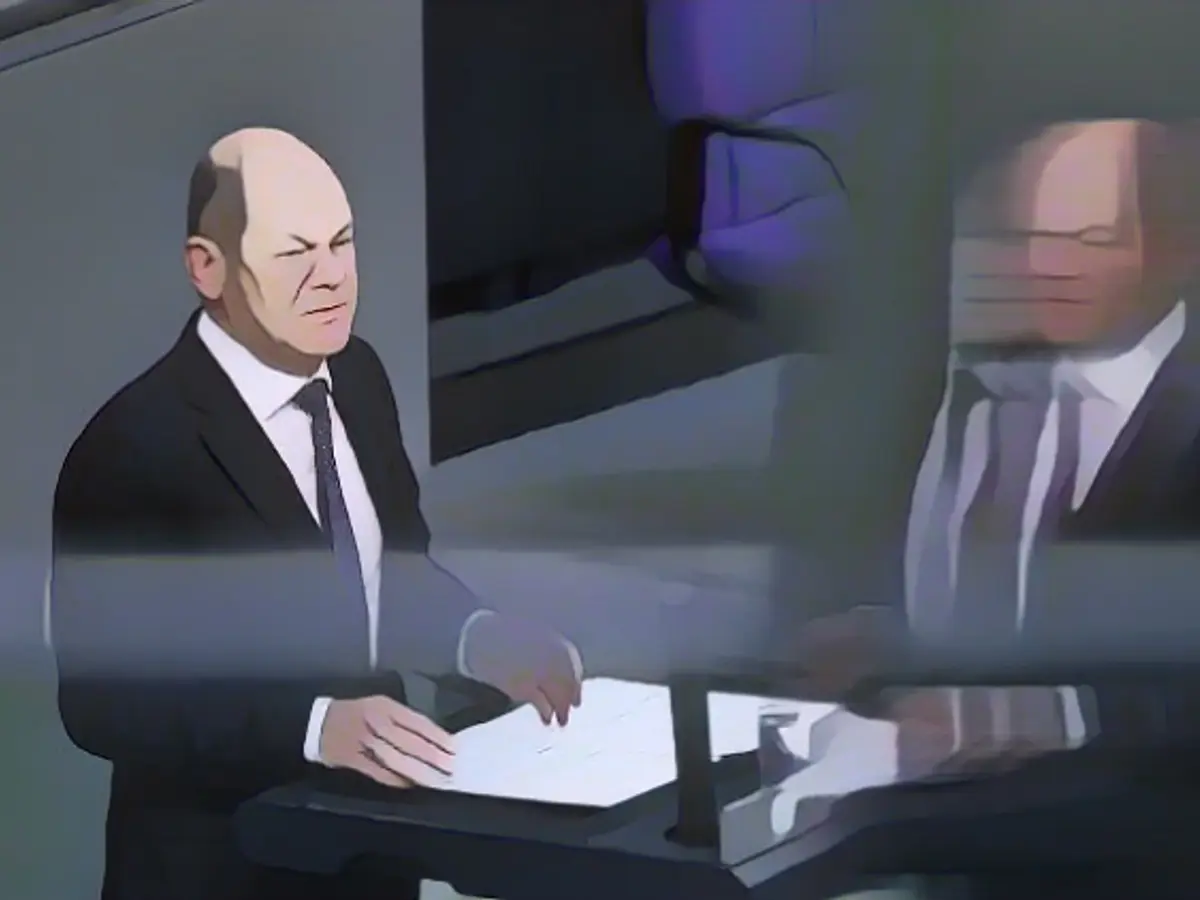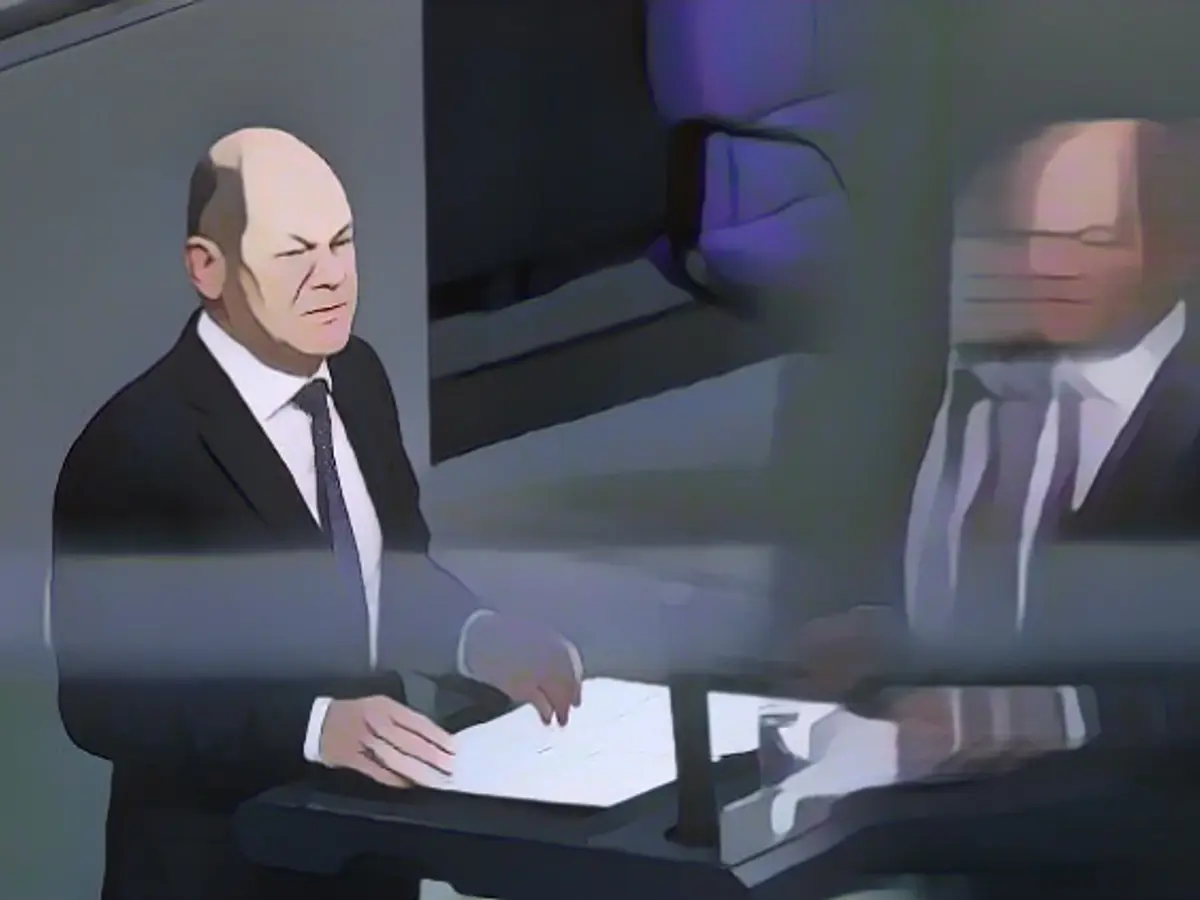Olaf, the grumpy one - a chancellor who muddles through
The coalition government is tottering around. Olaf Scholz is losing support every day and the FDP is openly considering ending the coalition. The opposition is already calling for new elections in June. But everyone is underestimating the chancellor's greatest quality: his enormous grumpiness.
"We don't have a budget emergency, we have a government emergency," rages Bavarian Prime Minister Markus Söder, calling for new elections on June 9. A new Bundestag should be elected at the same time as the European elections. The coalition government must face a vote of confidence, "not in parliament, but before the German people", demands Söder - and many people think this is right. The government is plummeting to historically miserable approval ratings in the polls. According to a Forsa survey, two thirds of Germans believe Olaf Scholz is "not up to the job". It could hardly be more embarrassing for a chancellor.
The media situation is also catastrophic for Olaf Scholz. Commentaries are focusing ever more sharply on the seemingly weak chancellor figure. From "Der Spiegel" ("the downfall of a know-it-all") to publicist Gabor Steingart ("not a leader, but a facade of self-righteousness and defiance"), the criticism already sounds like scathing obituaries - after all, Scholz himself developed the technique of side budgets. Among well-wishers, the word "Chancellor Twilight" is doing the rounds - among the sharp-tongued, he is derided as the "Cum-Ex-Chancellor" (alluding to the scandal of the same name): "Cum debts, but ex constitution".

But are we really witnessing the "beginning of the end of Scholz's chancellorship" announced in many editorials? Is it really already that far? At first glance, there are five reasons to think so:
Firstly, the problem situation (migration crisis, recession, budget emergency) is dramatic; Germany is indeed threatened with a collapse in prosperity and a weakening of its competitiveness with this weak government. At the same time, it cannot find the strength to decisively solve the migration and location crisis.
Secondly, the coalition is suffering an enormous loss of confidence due to the breach of the constitution (never before has the Constitutional Court reprimanded a federal government so harshly). The deep crisis of acceptance is also reflected in the fact that the AfD is now as strong in the polls as the SPD and FDP combined. In the European elections, there is a threat that the right-wing populists could even become the strongest force in Germany with a traffic light coalition.
The traffic light climate is considered "poisoned"
Thirdly, the coalition is as deeply divided as the partners in a broken marriage in a divorce lawyer's office. Key players are bitterly hostile and are openly acting against each other. Even within the government, the traffic light coalition is described as "horrible" to "poisoned".
Fourthly, the government is in a fatal dilemma of the budget emergency. It must either continue to work against the constitution and undermine the debt brake, massively increase taxes or dare to make deep social cuts. Each of these options reinforces the negative effect of the traffic light policy.
And fifthly, there is the threat of a break in power politics. The FDP in particular is virtually forced to take a tough stance on the budget crisis for the sake of sheer self-preservation, thereby causing the coalition to collapse with a big bang. Powerful groups are already forming within the FDP that want to force an immediate exit from the coalition. From the FDP's point of view, remaining in this coalition is like a prelude to total disaster in the form of a second parliamentary election at the next general election. The Liberals need an exit of bravery, and the budget crisis gives them the perfect opportunity.
Despite this gloomy five-party constellation, it is precisely the Chancellor himself who gives reason to predict that the traffic light could somehow survive after all. Scholz is regarded as a master of resilience. Many times in his career, he has seemed to be at the end of his rope and hopelessly out of contention - including before the last general election, when he appeared to be the certain election loser with miserable poll and popularity ratings. One of his strengths is his patience in stoically sitting out unpleasant situations.
As can be heard in Berlin, Scholz has once again adopted the motto "hang in there". Scholz is counting on the fact that no coalition party is interested in new elections. Many MPs and members of the government fear losing their seats in the event of early elections. "The sheer fear of a total loss of power is still holding us together," explains an FDP member of parliament. Numerous MPs are downright shocked by the latest election results, the polls and the mood at grassroots level and are hunkering down in the traffic light.
What Scholz and the beaked whale have in common
Scholz relies on a second of his perseverance techniques: Off-shifts. He likes to turn big, almost unsolvable problems into lots of small ones. For example, a supplementary budget for 2023 is to be drawn up first, then a few weeks have passed before the 2024 budget is up for debate. This is then divided into individual topics with deadline options. The third Scholz technique of lapping it up is that he dives into the water and systematically keeps the problem situation to a minimum, thus gaining time - like a beaked whale that dives kilometers into the sea when in danger and can stay under water for two hours. Scholz applied the beaked whale tactic perfectly after the historic decision in Karlsruhe, when he left an unsettled republic completely alone for days without comment.
Conclusion: Scholz wants to muddle through - like Kurt Georg Kiesinger, who managed surprising crises in a divided coalition from 1966 to 1969. But Kiesinger was at least a talkative educated citizen. Scholz, on the other hand, celebrates his technocratic nimbus with tantalizingly sparse words, gestures and actions. His resilience consists above all of demonstrative grumpiness. None of the eight previous chancellors came across as brittle as he did. Kiesinger was previously regarded as a classic transitional regent, the weakest chancellor in the history of the Federal Republic. Scholz could take his place.
The Federal Constitutional Court has criticized the traffic light coalition's budget policy, stating that some of their actions have breached the constitution. Despite the criticism, Olaf Scholz, the chancellor, remains determined to muddle through the coalition's challenges.
In response to the deep crisis of acceptance and the harsh reprimand from the Federal Constitutional Court, Olaf Scholz and his coalition partners are working on a supplementary budget for 2023, aiming to break down the problem into smaller, manageable parts.
Source: www.ntv.de








